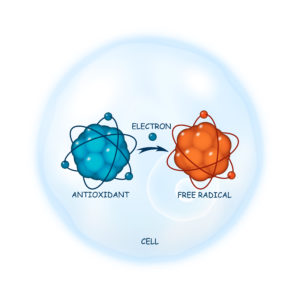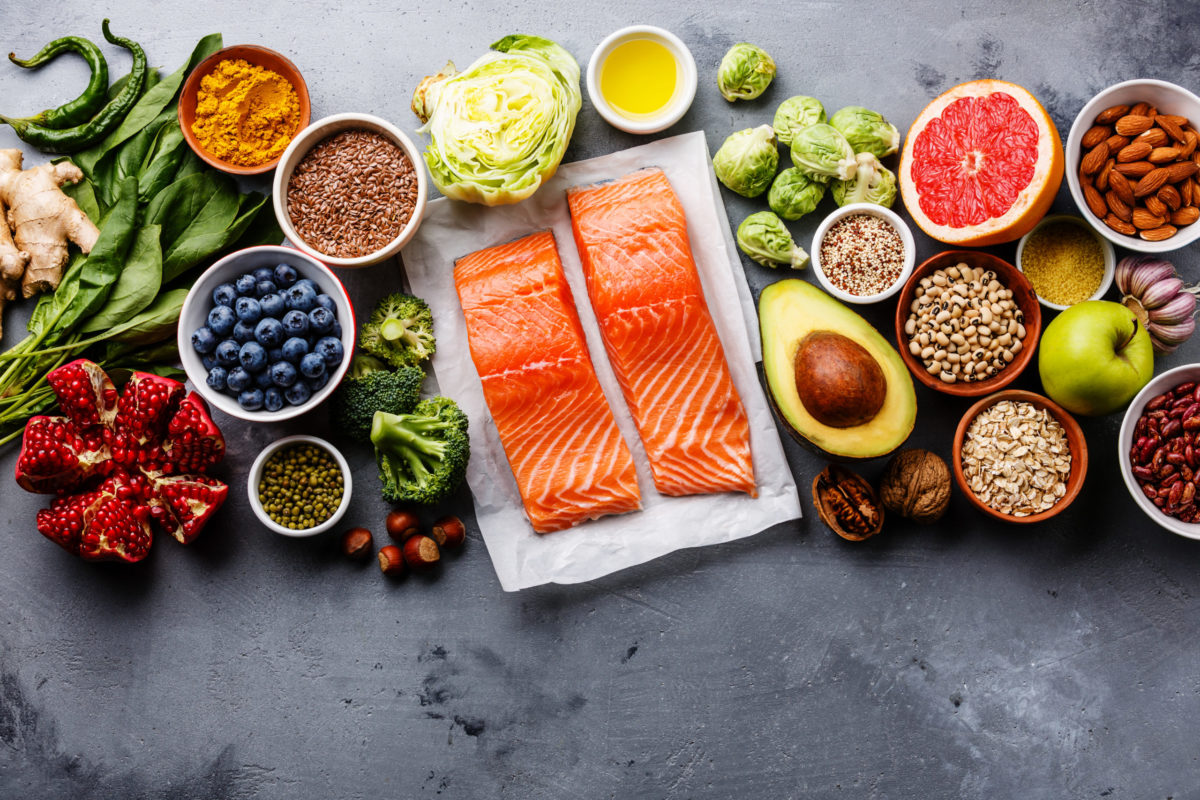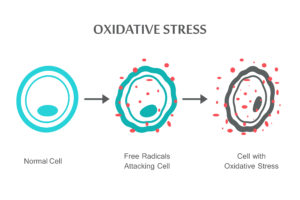Antioxidants are good for you — this much you know.
You also know there are certain foods you can eat to boost your antioxidant levels, such as squash, citrus, fish and crab.
But do you know how antioxidants do all those good things for your body?
WellTuned spoke with Leslie Cornett, registered dietitian-nutritionist at BlueCross BlueShield of Tennessee, to get specifics.
Quick refresher: What are antioxidants?
Cornett: An antioxidant is a substance that stops or slows cell damage in our bodies. Antioxidants work by neutralizing other substances known as free radicals.
What are free radicals?
Cornett: A free radical is an atom that’s unstable. As a kind of waste product, free radicals are produced by cells in our bodies and in the environment at large.
Stable vs. unstable atoms
Every atom has an outer shell that’s filled with electrons.
- If every spot in an atom’s outer shell is filled, the atom is stable.
- If there’s an empty spot in an atom’s outer shell, that atom is unstable.

Cornett: When an atom has an unpaired electron, this unstable atom — a free radical — will go looking for another atom to steal an electron from. Naturally, if it succeeds in stealing an electron, it damages the molecule it steals from – unless that molecule is an antioxidant.
Antioxidants and free radicals
Cornett: Antioxidants are compounds that voluntarily give away their electrons. When an antioxidant donates a stabilizing electron, the free radical can no longer cause damage to other cells. By sacrificing their electrons, antioxidants stop damaging processes, which are also known as oxidative stress.
What is oxidative stress?
Cornett: Oxidative stress occurs when the ratio of free radicals to antioxidants is out of balance.
When the unstable atoms in free radicals don’t get neutralized, that causes cellular damage, or oxidative stress, in the form of disease, skin damage, inflammation, etc.
How does oxidative stress get out of control?
Cornett: Free radicals are produced naturally in the body by our metabolism and other cellular processes. Typically, our bodies can fight off the free radicals that are produced.
However, certain lifestyle factors can accelerate the production of free radicals. For example, prolonged or extreme exposure to toxins can throw that balance off and cause damage.
External causes of oxidative stress
Cornett: Oxidative stress can be caused or worsened by exposure to:
- Toxins
- Chemicals (ex. pesticides)
- Environmental pollutants (ex. air pollution)
- Smoking
- Alcohol
- UV rays
- Unhealthy foods (ex. fried foods)
Problems connected to oxidative stress
Cornett: Studies have connected oxidative stress to:
- Cataracts
- Emphysema
- Alcoholism
- Inflammatory conditions (rheumatoid arthritis, cancer)
- Diseases of the central nervous system (Alzheimer’s, dementia)
- Heart disease and stroke
- Age-related vision issues
- Skin aging (loss of elasticity, wrinkles)
- Hair loss or changes in texture and color
- Diabetes
- Degenerative genetic diseases (Parkinson’s)
- Hypertension
What role does inflammation play?
Cornett: Like oxidative stress, inflammation has been linked to conditions from cancer and heart disease to diabetes. When a part of your body is inflamed, it means your immune system has identified illness or trauma and is working to heal it.
There are two kinds of inflammation:
- Acute inflammation is temporary — your wrist swells after you sprain it, or your fingers swell after you eat unhealthy foods for a few days.
- Chronic inflammation, on the other hand, is slow and lasts months or years. If you have a condition such as diabetes, heart disease, arthritis, COPD, or allergies, you may experience chronic inflammation that needs to be managed with lifestyle changes, diet, medication, etc.
How do you fight free radicals and oxidative stress?
Cornett: As always, a healthy lifestyle is the best defense.
To keep your level of oxidative stress low:
- Eat an antioxidant-rich diet
- Limit alcohol use
- Avoid smoking (first- and second-hand)
- Avoid unhealthy sun exposure
- Take time to rest, recuperate and recover from stress
- Get regular physical activity
More from Leslie Cornett and WellTuned
Get more information about specific health terms, topics and conditions to better manage your health on bcbst.com. BlueCross BlueShield of Tennessee members can access wellness-related discounts on fitness products, gym memberships, healthy eating and more through Blue365®. BCBST members can also find tools and resources to help improve health and well-being by logging into BlueAccess and going to the Managing Your Health tab.



